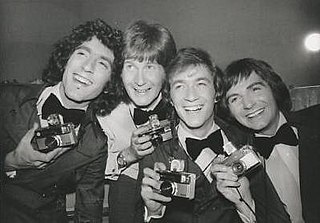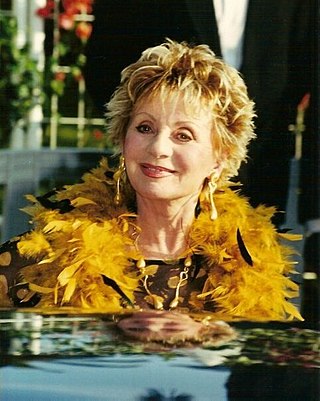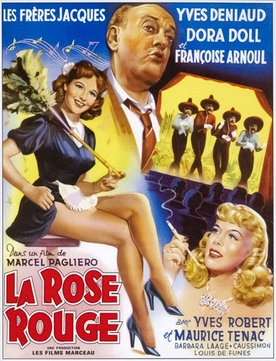Plot
Five catastrophe-prone friends—Gérard, Phil, Jean-Guy, Jean and Luis—decide to leave home and start a rock band. They find a supporter in Crème, a young woman who runs a musical instruments shop and believes in them. She enters them in a battle of the bands which turns out to be rigged, but they win despite unleashing mayhem on stage when she cheats on their behalf.
Unfortunately for them, the young men are then called up for their military service. In order to be able to take part in the next competition, they set about being kicked out by being as incompetent and uncooperative as they can be. Their musical talents are however put to use by their commanding officer, who requisitions them to play his daughter's wedding reception. Eventually, the colonel kicks them out with the exception of Gérard, whom he decides to keep as his aide. The other four, briefly delighted to be out, return for him.

Les Charlots, known as The Crazy Boys in the English-speaking world, was a group of French musicians, singers, comedians and film actors, who were popular in the 1960s, 1970s, and early 1980s.

Pierre Batcheff was a French actor of Russian origin. He became a popular film actor from the mid-1920s until the early 1930s, and among his best-known work was the surrealist short film Un chien andalou (1929), made by Luis Buñuel in collaboration with Salvador Dalí. After appearing in about twenty-five films, he died at an early age from a drug overdose.
Roméo et Juliette: de la Haine à l'Amour is a French musical based on William Shakespeare's play Romeo and Juliet, with music and lyrics by Gérard Presgurvic. It premiered in Paris on January 19, 2001. The production was directed and choreographed by Redha, with costumes by Dominique Borg and settings by Petrika Ionesco. The producers were Gérard Louvin, GLEM, and Universal Music. ! Since then, the musical has been performed in Verona, Rome, Canada, Antwerp, London, Amsterdam, Budapest, Szeged, Moscow, Vienna, Bucharest, Seoul, Pusan, Taipei, Monterrey, Japan, Hong Kong, Shanghai and Portugal and has been translated into several languages, including Dutch, Italian, Hungarian, Russian, English, German, Spanish, Romanian, Japanese, Korean, Portuguese, and Slovak.

Going Places is a 1974 French comedy-drama film co-written and directed by Bertrand Blier, and based on his own novel. Its original title is Les Valseuses, which translates into English as "the waltzers", a vulgar French slang term for "the testicles". It stars Miou-Miou, Gérard Depardieu and Patrick Dewaere.
Jacques Jouanneau was a French actor. He was born in Angers, France.

Bons Baisers de Hong Kong is a 1975 French spy comedy film directed by Yvan Chiffre.
Gérard Blanc was a French singer, guitarist and actor.

The Elusive Corporal is a 1962 French film directed by Jean Renoir that stars Jean-Pierre Cassel, Claude Brasseur, and Claude Rich. It was entered into the 12th Berlin International Film Festival.

Léonie Juliana, Baroness Cooreman, also known by her stage name Annie Cordy, was a Belgian actress and singer. She appeared in more than 50 films from 1954 and staged many memorable appearances at Bruno Coquatrix' famous Paris Olympia. Her version of "La Ballade de Davy Crockett" was number 1 in the charts for five weeks in France in August 1956. She was born in Laeken, Belgium, where in 2004, King Albert II of Belgium bestowed upon her the title of Baroness in recognition for her life's achievements.
Christian Fechner was a French film producer, screenwriter and director.

The Red Rose is a 1951 French comedy film directed by Marcello Pagliero and starring Françoise Arnoul, Yves Deniaud and Dora Doll. The film's sets were designed by the art director Maurice Colasson. It features a series of musical sketches, and attracted roughly half a million spectators at the French box office.

L'Animal is a 1977 French action comedy film directed by Claude Zidi and starring Jean-Paul Belmondo and Raquel Welch. It was distributed in the United States by Analysis Film Releasing Corp under the title Stuntwoman.

Gérard Rinaldi was a French actor, musician, lyricist, artistic director and singer with Les Charlots.

The Big Store is a 1973 French comedy film directed by Claude Zidi.

Les Fous du Stade is a 1972 French comedy film directed by Claude Zidi.

I Don't Know Much, But I'll Say Everything is a 1973 French comedy film directed by Pierre Richard.
Martin Circus was a French band formed in the late 1960s, whose musical style developed over time from progressive rock through pop to disco and new wave music in the 1970s and 1980s.

Gérard Filippelli was a French actor, composer, and singer.

Jean Sarrus is a French actor, composer, and singer. People know him best as a member of the legendary band Les Charlots.

Les Bidasses s'en vont en guerre is a French comedy film directed by Claude Zidi and released in 1974. It is the sequel of the director's first film Les Bidasses en folie.













